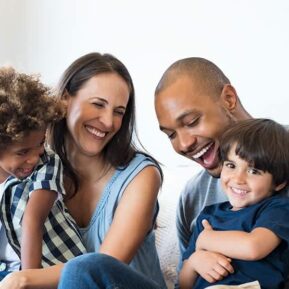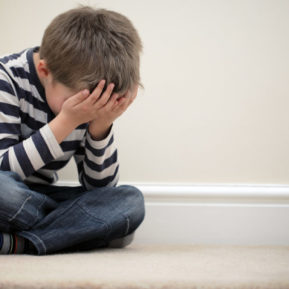Best Parenting Books: Top Picks Of 2021
Conscious Parenting Books
There are so many incredible parenting books available today. Books which cover everything from childhood trauma, neuroscience, child development, attachment styles and conscious parenting. These books are available at a touch of a button and can radically transform the way we parent by increasing our awareness and helping us understand why we parent the way we do.
If our parents had access to such information then maybe our lives would have looked very differently. We repeat what we know and we pass our parenting styles down the generational lines until someone decides to break the pattern by “doing the work.”
In this article some of the 10 best parenting books have been listed which can dramatically change the way you parent. If you are new to conscious parenting and want to expand your mind and become more conscious then start here. These are my favourites and books which I recommend to parents who I work 1-1 with.
1. Healing Developmental Trauma by Aline LaPierre and Laurence Heller
Written for those working to heal developmental trauma and seeking new tools for self-awareness and growth, this book focuses on conflicts surrounding the capacity for connection. Explaining that an impaired capacity for connection to self and to others and the ensuing diminished aliveness are the hidden dimensions that underlie most psychological and many physiological problems, clinicians Laurence Heller and Aline LaPierre introduce the NeuroAffective Relational Model®
2. Why Love Matters by Sue Gerhardt
Why Love Matters explains why love is essential to brain development in the early years of life, particularly to the development of our social and emotional brain systems, and presents the startling discoveries that provide the answers to how our emotional lives work.
Sue Gerhardt considers how the earliest relationship shapes the baby’s nervous system, with lasting consequences, and how our adult life is influenced by infancy despite our inability to remember babyhood. She shows how the development of the brain can affect future emotional well being, and goes on to look at specific early ‘pathways’ that can affect the way we respond to stress and lead to conditions such as anorexia, addiction, and anti-social behaviour.
Why Love Matters is a lively and very accessible interpretation of the latest findings in neuroscience, psychology, psychoanalysis and biochemistry. It will be invaluable to psychotherapists and psychoanalysts, mental health professionals, parents and all those concerned with the central importance of brain development in relation to many later adult difficulties.
3. Running On Empty No More by Dr Jonice Webb
Since the publication of Running on Empty: Overcome Your Childhood Emotional Neglect, many thousands of people have learned that invisible Childhood Emotional Neglect, or CEN, has been weighing on them their entire lives, and are now in the process of recovery. Running on Empty No More: Transform Your Relationships will offer even more solutions for the effects of CEN on people’s lives: how to talk about CEN, and heal it, in relationships with partners, parents, and children.
“Filled with examples of well-meaning people struggling in their relationships, Jonice Webb not only illustrates what’s missing between adults and their parents, husbands, and their wives, and parents and their children; she also explains exactly what to do about it.” —Terry Real, internationally recognized family therapist, speaker and author, Good Morning America, The Today Show, 20/20, Oprah, and The New York Times
“You will find practical solutions for everyday life to heal yourself and your relationships. This is a terrific new resource that I will be recommending to many clients now and in the future!” —Dr. Karyl McBride, author of Will I Ever Be Good Enough?
4. Unconditional Parenting by Alfie Kohn
Most parenting guides begin with the question “How can we get kids to do what they’re told?”–and then proceed to offer various techniques for controlling them. In this truly groundbreaking book, nationally respected educator Alfie Kohn begins instead by asking “What do kids need–and how can we meet those needs?” What follows from that question are ideas for working with children rather than doing things to them.
One basic need all children have, Kohn argues, is to be loved unconditionally, to know that they will be accepted even if they screw up or fall short. Yet conventional approaches to parenting such as punishments (including “time-outs”), rewards (including positive reinforcement), and other forms of control teach children that they are loved only when they please us or impress us. Kohn cites a body of powerful, and largely unknown, research detailing the damage caused by leading children to believe they must earn our approval. That’s precisely the message children derive from common discipline techniques, even though it’s not the message most parents intend to send.
More than just another book about discipline, though, Unconditional Parenting addresses the ways parents think about, feel about, and act with their children. It invites them to question their most basic assumptions about raising kids while offering a wealth of practical strategies for shifting from “doing to” to “working with” parenting–including how to replace praise with the unconditional support that children need to grow into healthy, caring, responsible people. This is an eye-opening, paradigm-shattering book that will reconnect readers to their own best instincts and inspire them to become better parents.
5. Parenting From The Inside Out by Daniel J Siegel and Mary Hartzell
In Parenting from the Inside Out, child psychiatrist Daniel J. Siegel, M.D., and early childhood expert Mary Hartzell, M.Ed., explore the extent to which our childhood experiences shape the way we parent. Drawing on stunning new findings in neurobiology and attachment research, they explain how interpersonal relationships directly impact the development of the brain, and offer parents a step-by-step approach to forming a deeper understanding of their own life stories, which will help them raise compassionate and resilient children.
Born out of a series of parents’ workshops that combined Siegel’s cutting-edge research on how communication impacts brain development with Hartzell’s decades of experience as a child-development specialist and parent educator, this book guides parents through creating the necessary foundations for loving and secure relationships with their children.
6. The Conscious Parent by Dr Shefali Tsabary
Conscious parenting is about becoming mindful of your behaviour and engaging with your child as an individual.
Dr Tsabary inspires parents to get back in touch with their emotions and shed the layers of baggage they have inherited during their own life and are unconsciously heaping on their children. As they become ‘conscious’ in their parenting, so parents can transform their relationship with their offspring and raise happy, well-adjusted children.
The Conscious Parent is already transforming the way people are parenting through its sales in the US where it’s spent 15 weeks on the New York Times bestseller list. Oprah described the book as ‘The most profound book on parenting I’ve ever read’ and Eckhart Tolle has said ‘becoming a conscious parent is the greatest gift you can give your child.’
The book features a foreword by His Holiness The Dalai Lama.
7. Being There – Why Prioritising The First 3 Years Matter by Erica Komisar
In this important and empowering book, veteran psychoanalyst Erica Komisar explains why a mother’s emotional and physical presence in her child’s life–especially during the first three years–gives the child a greater chance of growing up emotionally healthy, happy, secure, and resilient.
In other words, when it comes to connecting with your baby or toddler, more is more.
Compassionate and balanced, and focusing on the emotional health of children and moms alike, this book shows parents how to give their little ones the best chance for developing into healthy and loving adults. Based on more than two decades of clinical work, established psychoanalytic theory, and the most cutting-edge neurobiological research on caregiving, attachment, and brain development, Being There explains:
• How to establish emotional connection with a newborn or young child–regardless of whether you’re able to work part-time or stay home
• How to ease transitions to minimize stress for your baby or toddler
• How to select and train quality childcare
• What’s true and false about widely held beliefs like “I’m not good with babies” and “I’ll make up for it when he’s older”
• How to recognize and combat feelings of postpartum depression or boredom
• Why three months of maternity leave is not long enough–and how parents can take control of their choices to provide for their family’s emotional needs in the first three years
Being a new mom isn’t easy. But with support, emotional awareness, and coping skills, it can be the most magical—and essential—work we’ll ever do.
8. Hold On To Your Kids – Why Parents Need To Matter More Than Peers by Gordon Neufeld and Gabor Maté
International authority on child development Gordon Neufeld, Ph.D., joins forces with bestselling author Gabor Maté, M.D., to tackle one of the most disturbing trends of our time: Children today looking to their peers for direction—their values, identity, and codes of behavior. This “peer orientation” undermines family cohesion, interferes with healthy development, and fosters a hostile and sexualized youth culture. Children end up becoming overly conformist, desensitized, and alienated, and being “cool” matters more to them than anything else.
Hold On to Your Kids explains the causes of this crucial breakdown of parental influence—and demonstrates ways to “reattach” to sons and daughters, establish the proper hierarchy in the home, make kids feel safe and understood, and earn back your children’s loyalty and love. This updated edition also specifically addresses the unprecedented parenting challenges posed by the rise of digital devices and social media. By helping to reawaken instincts innate to us all, Neufeld and Maté will empower parents to be what nature intended: a true source of contact, security, and warmth for their children.
9. The Whole Brain Child by Tina Payne Bryson & Daniel Siegel
In this pioneering, practical book for parents, neuroscientist Daniel J. Siegel and parenting expert Tina Payne Bryson explain the new science of how a child’s brain is wired and how it matures. Different parts of a child’s brain develop at different speeds and understanding these differences can help you turn any outburst, argument, or fear into a chance to integrate your child’s brain and raise calmer, happier children.
Featuring clear explanations, age-appropriate strategies and illustrations that will help you explain these concepts to your child, The Whole-Brain Child will help your children to lead balanced, meaningful, and connected lives using twelve key strategies, including:
Name It to Tame It: Corral raging right-brain behaviour through left-brain storytelling, appealing to the left brain’s affinity for words and reasoning to calm emotional storms and bodily tension.
Engage, Don’t Enrage: Keep your child thinking and listening, instead of purely reacting.
Move It or Lose It: Use physical activities to shift your child’s emotional state.
Let the Clouds of Emotion Roll By: Guide your children when they are stuck on a negative emotion, and help them understand that feelings come and go.
SIFT: Help children pay attention to the Sensations, Images, Feelings, and Thoughts within them so that they can make better decisions and be more flexible.
Connect Through Conflict: Use discord to encourage empathy and greater social success.
Why do– A Dutch babies seem so content, and sleep so well? A Dutch parents let their kids play outside on their own? A The Dutch trust their children to bike to school? A Dutch schools not set homework for the under-tens? A Dutch teenagers not rebel? A What is the secret of bringing up the happiest kids in the world? In a recent UNICEF study of child well-being, Dutch children came out on top as the happiest all-round. Rina Mae Acosta and Michele Hutchison, both married to Dutchmen and bringing up their kids in Holland, examine the unique environment that enables the Dutch to turn out such contented, well-adjusted and healthy babies, children and teens. Read this book if you want to find out what lessons you can learn from Dutch parents, to ensure your kids turn out happy!
Sign up today for unlimited access:
- Book appointments
- Expert advice & tips
- Premium videos & audio
- Curated parenting newsletters
- Chat with your bloss community
- Discounts & competitions
- Special events





Leave a Rating / Review
You must be logged in to post a comment.